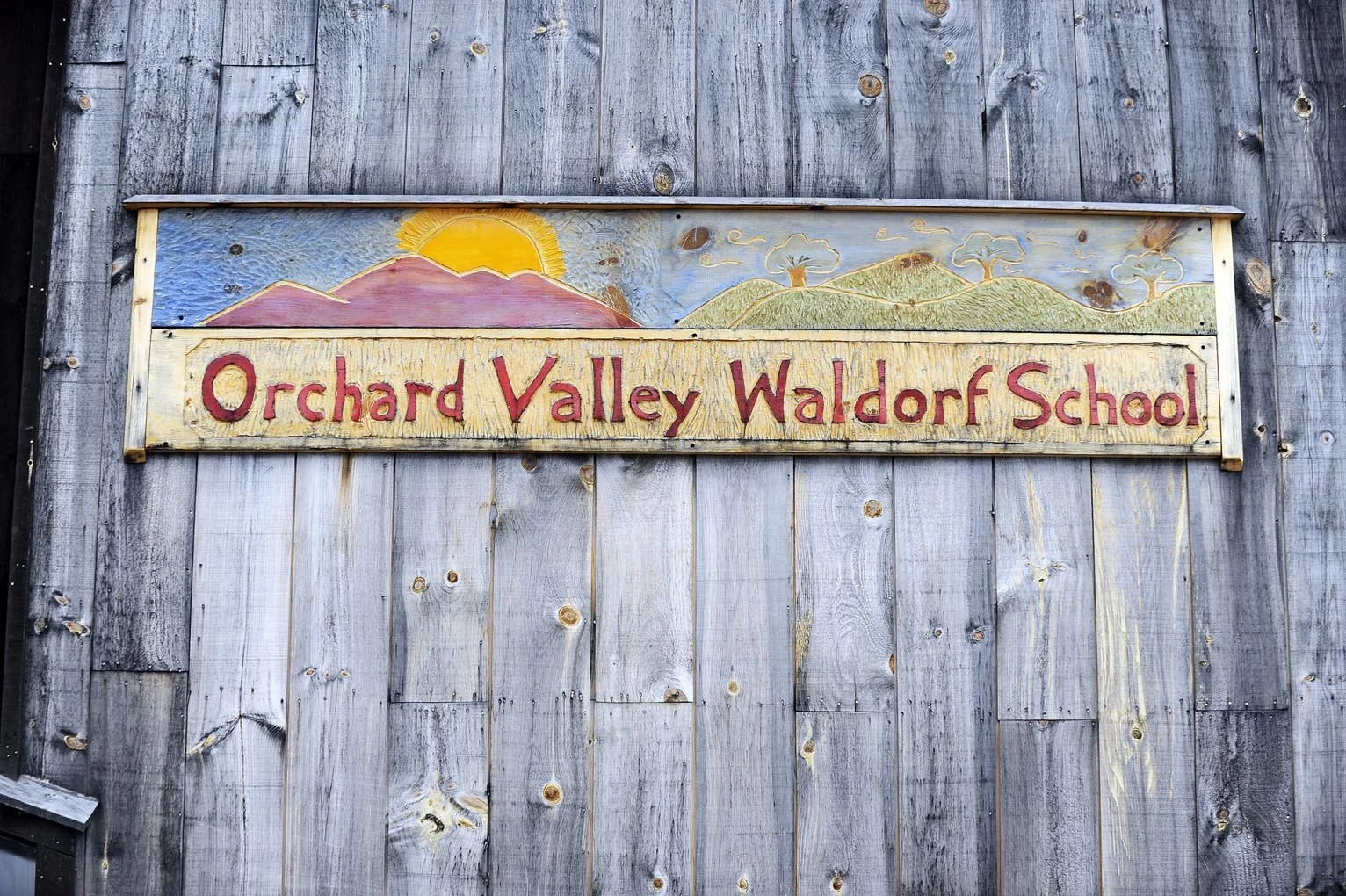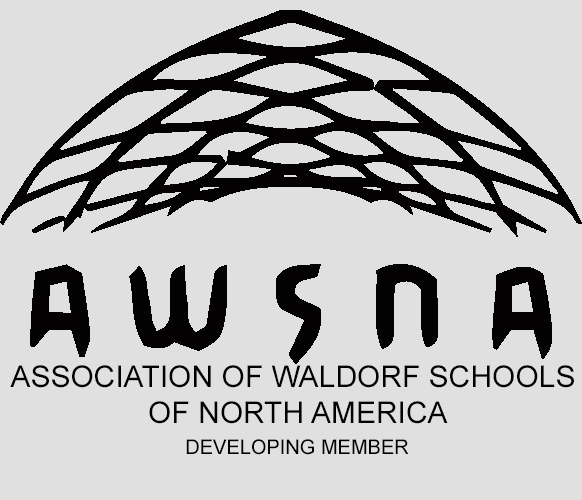Celebrating our 8th graders.
Spring Gala!
Next Open House: Saturday, April 30th!
OPEN HOUSE ~ Saturday, April 30 ~ 10 am to 12:30 pm
Following on the heels of our wonderful Open House in March, our next one will be April 30. Please help spread the word!
Campus tours and time to ask questions of faculty, staff, and parents.
Children are welcome, with two walks through the fields and forest at 11am and noon and ongoing guided art activities.
- 10:30am – Grades walk-through, including a sample lesson.
- 11:15am - Guided walk
- 11:30am – Early Childhood classroom visits to speak with teachers and parents and learn about our programs, including Farm and Forest, Little Lambs childcare, and Montpelier Child’s Garden.
- 12:00am - Guided walk
Contact Morgan Irons with any questions!
Donate to our Silent Auction!
Our Second Annual Spring Gala and Silent Auction is coming up!
Sunday, May 22, 5-8pm at the Vermont College of Fine Arts’ Gallery, Montpelier
Wonderful entertainment, food and drinks are on the menu for this adults-only event. And a fantastic array of Auction items will be filling the tables!
Donations to our Auction make it the wonderful event it is. You can Donate Here. Thank you!
10th Annual Pie Breakfast (Saturday, May 7th)!
Join in the fun and visit with friends and neighbors at our delectable Sweet ‘N Savory Pie Breakfast!
8:30am to 12 noon (unless we run out of pie earlier, so be sure to come early!)
Location: Trinity United Methodist Church, 137 Main Street, Montpelier (right next to the Kellogg-Hubbard Library)
$8 per person; $30 per family; children under 5 free
Grade 6 Business Math Block - An Anchor for the Future
Just before February break, Grade 6 completed their Business Math/Economics Block. The class traced the evolution of money from self-sufficiency and bartering to the currency we use today, and delved into percents, their relationship to fractions and decimals, and their role in discounts, taxes, and profits.
They then put this learning right to practical use, as each student designed a business and guessed at the costs of running it. They also learned a bit about how to promote their business by making posters, writing a classified ad, and preparing notes for a radio interview. On the accounting end, each student received a checkbook and register and learned how to use them, and received a ‘monthly salary’ to use to pay all of their bills (mortgage, phone/internet, gas for the car, groceries, etc.). With the money left in their accounts, the students made spending decisions and purchased hypothetical goods from the other businesses - i.e. skirts from the clothing store, a car from the auto dealer (after calculating the monthly payment they could afford), a meal from the café, etc.
Grade 6 Teacher Libby Case remarked that this block was another opportunity “to build a sort of anchor in the students to attach things to. For instance, when we teach Greek history the students don’t delve into all of it, but when they go to college they have something to draw from to build that new learning upon.”
The students wrapped up the block with a Snack Store the last few days before break, using their new skills in a store setting. Snacks were purchased in bulk and a markup was chosen; profits from the sale will be donated to the Orchard School of Montreal. The school visited OVWS last fall and shared that many of the students are quite poor and lack the funds to bring snacks to school, so the school solicits donations from stores to provide this for their students. “We thought that by selling snacks here we could provide them with snacks there,” said Libby Case. As a result of the students’ efforts, they earned $100 that they’ll be sending to Orchard School in Montreal.
When school resumes after break, the 6th Grade will visit VSECU in Montpelier to learn how the credit union works.
Two Summer Programs at Orchard Valley!
Woodworking as a Medium for Self-Discovery
Seated in a circle on the braided rug on the floor in the Maple Tree Kindergarten class, 17 children watch as Heinz works with one child on his woodworking project. The children are making buttons from moosewood (called that because moose love to rub their antlers on these trees – a fact the children love, Heinz says) and they are rapt as they watch the hand drill spinning round, waiting for their turn.
Heinz Rathmann has been teaching woodworking for 21 years now, and this is his fourth year at OVWS. He works with grades 4-8 as well as the Kindergarten. This is the second project for the Kindergarteners; with the first, the children learned how to hit nails into a beautiful round of birch, striking the nails strong and true. Then they wound colorful string around the pattern of nails for a lovely piece that resembles a web.
Heinz says the value of woodworking is similar regardless of the children’s ages. They learn how to move with the tool, something that is as important for the Kindergartener as it is for the 8th grader. When this work is positively expressed, Heinz says, it forms a healthy dance as the work and the movement flow with the tool. They also learn “patience and perseverance, and to strive for the best they can do,” he adds, something that comes forth during the physical act of creating an object.
The seventh graders are working on three-legged stools now during their woodworking guild. They are working with pine, and each stool seat is a work of art unique to the student creating it.
Heinz says that all of the students learn something in the process: Some start with creativity and learn patience; others may start with a greater level of patience and learn to express their creativity through working with the wood. And they always learn about themselves during the process.
For Heinz, that’s the wonderful part. “I love to see them grow and learn about themselves.”
Announcing Our New Outdoor Education Program! OVWS Farm and Forest
Announcing Our New Outdoor Education Program! OVWS Farm and Forest
The orchards and forested landscape of our campus have been a source of inspiration, playful adventure, exploration, and learning for all of us since Orchard Valley began. Now we are proud to launch our first program dedicated to outdoor education, starting in June 2016.
There will be three sessions of theme-based summer camps for children ages 4-11 starting in June and ending in August. In the fall our outdoor program continues for young children ages 4-7 years.
An outdoor classroom during the school year allows children to move, play and discover core principles in science through “hands on” nature-based activities. Children can help build fires, prepare food, find wild edible plants and work in the school gardens as an integral part of the day. Traditional skills in social dynamics and language arts are developed through oral story telling, skits, role-play, puppet shows, games and songs. The themes for each week reflect the wonder of the changing seasons, woodland crafts, folk lore, Native American culture, and knowledge of our local natural environment.
Many Waldorf schools in North and South America have been exploring ways to integrate best practices in outdoor and environmental place-based education with traditional Waldorf Education. This impulse began decades ago with the European “Forest Kindergarten” model in Copenhagen, Denmark. Forest Kindergartens have recently opened at The Hartsbrook School in Massachucets, the Saratoga Springs Waldorf School in New York, and the Waldorf School in Carbondale, Denver.
Stay tuned for more details about these new programs in upcoming Apple Core issues. Registration information will also be available soon–contact Morgan Irons, Enrollment Director.
~ Linda Weyerts, Pedagogical Chair
Middle School Students Apply Academics through Hands-On Learning Experiences
Our Middle School students at OVWS are engaged in many new “hands-on” learning experiences that are innovative in Waldorf Education. As we continue to work on mastery of traditional academic skills like algebra and writing, the practical and socially relevant application of these new abilities is important for young people today. Through “place-based” learning, which focuses on local environmental resources and project-based learning which focuses on community problem solving for present needs, students can become naturally engaged and work with a sense of purpose that lays a foundation for service leadership and civic responsibility.
One example of this includes a revolutionary new “Math for Sustainability” workshop taught by Waldorf visiting teacher and math specialist Tracy Gillespie in the 8th grade main lesson for the month of January. The eighth graders are working on issues such as “peak oil,” energy consumption, alternative energy sources, and the global economy through the lens of sustainability. These concepts and skills are applied in the outdoor classroom on the eighth grade class trip expedition and trips to sustainability homesteads in our area.
Then in English class the 7th and 8th graders will be working on the question of “Racisim in America.” Their study is driven by the 2016 Vermont Hildene Lincoln essay contest for 8th graders, in which students are asked to respond to the question, “Why do you think racism persists in America: what factors contribute to its persistence and how can these factors be addressed in order to move the country toward a more perfect union?” Guided by President Abraham Lincoln’s biography and values, the Hildene essay contest challenges young people to think creatively and communicate clearly and with persuasive argument about questions that can change the world. (The Hildene Lincoln Estate is a learning center for sustainability and cultural renewal in Manchester, VT.)
~ Pedagogical Chair Linda Weyerts






